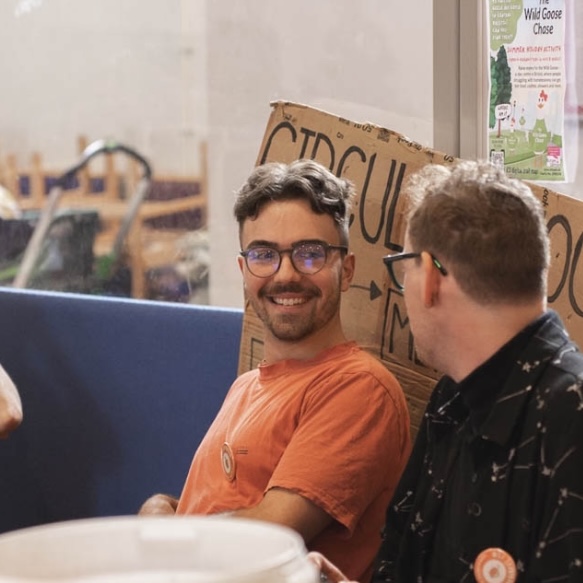Small Actions, Big Change: How Community Regenerates Soil
- Alex Montgomery
- Oct 6, 2025
- 2 min read
Updated: Oct 13, 2025
When people think of regeneration, they often picture policy meetings, large-scale funding, and technical systems. But in reality, regeneration starts much smaller. It starts with a few hands in the soil. With a bucket. With neighbours talking across garden fences. At Generation Soil, we’ve seen firsthand how small acts of care can create real impact.

From Worms to Workshops
Sofie, one of our community members, crocheted tiny worms for Generation Soil, a reminder that even art can inspire action. Connor, another member, designed mushrooms for our upcoming plant swap and built a gadget that turns empty drinks cans into planters. These gestures might seem small, but they’re part of something bigger: a culture of creativity, care, and circular thinking.
From Scraps to Soil
Members of our Bristol Living Compost Project are learning, experimenting, and sharing. They’re turning food scraps into living compost using bokashi fermentation, a microbe-powered process that keeps food waste out of the system and returns nutrients directly to the soil. In return, they share stories, photos of gardens, questions about compost, and reflections on what it means to reconnect with the land beneath their feet. This isn’t just about waste. It’s about community.

From Fields to Food Forests
Last month, over twenty volunteers gave up their Saturday to help us start transforming two compacted agricultural fields into a food forest market garden. The work was muddy, sweaty, and joyful. Every shovel of soil turned was an act of regeneration, not just for the land, but for the people who showed up. Research shows that working with soil microbes can lower stress and improve wellbeing. But you don’t need a study to feel it. You can sense it in the calm that comes after a day outdoors, hands in the earth.

Regeneration Starts Small
Community composting isn’t just about managing waste. It’s about changing behaviour, reducing contamination, and keeping nutrients local. Projects like ours show that decentralised, small-scale systems can complement existing city infrastructure and, in doing so, strengthen resilience from the ground up. It’s the same lesson that cities like Surabaya in Indonesia have taught us: when people are involved, systems change more quickly.
Get Involved
Whether you live in Bristol or beyond, there’s a way to be part of this story.
If you’re in Bristol:
Join the Bristol Living Compost Project and help build a new model for local, living soil regeneration.
Anywhere else:
Download our FREE Beginner’s Guide to Compost, Microbes & Regeneration, and start your own journey.
Because regeneration doesn’t start with a policy, it starts with people. One bucket. One Saturday. One community at a time.




Comments